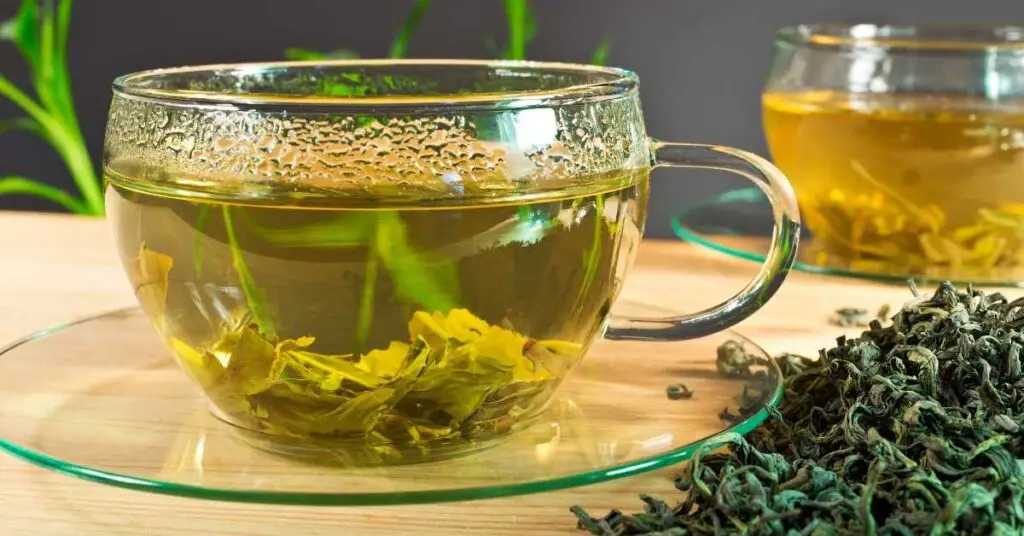Heartburn, also known as acid reflux, is a common condition that affects millions of Americans. The symptoms are usually Burning sensation in the chest, behind the breastbone, or in the throat; Pain that worsens when lying down or bending over; coughing; difficulty swallowing. While heartburn can be caused by a number of different factors, such as certain foods or medications, it is most often the result of a problem with the lower esophageal sphincter (LES). The LES is a muscle that regulates the flow of food and liquids into the stomach. When this muscle is weak or relaxes at the wrong time, stomach contents can flow back up into the esophagus, leading to heartburn. There are a number of ways to treat heartburn, including lifestyle changes, over-the-counter medications, and prescription drugs. In severe cases, surgery may be necessary. With proper treatment, most people with heartburn can control their symptoms and live normal, healthy lives.
Yes, black tea can cause heartburn in some people. This is because black tea contains caffeine and other substances that can irritate the lining of the stomach.
When this happens, stomach acids are more likely to flow back up into the esophagus, causing a burning sensation. To avoid this, try drinking decaffeinated black tea or herbal teas instead. You should also avoid drinking black tea on an empty stomach, as this can increase the risk of heartburn. If you experience frequent or severe heartburn, talk to your doctor about possible treatments.
How does black tea cause heartburn?
While there are many possible causes of heartburn, black tea is often one of the culprits. This is because black tea contains caffeine and tannins.
Caffeine is a stimulant that can cause the lower esophageal sphincter to relax, preventing it from closing properly after food passes into the stomach. As a result, stomach acids can flow back into the esophagus, causing heartburn.
Tannins are another substance found in black tea that can cause relaxation of the lower esophageal sphincter. In addition, tannins have been reported to increase stomach acid production.
Together, these effects can lead to heartburn after consuming black tea. While some people may be more susceptible to these effects than others, avoiding black tea or consuming it in moderation may help to reduce the risk of heartburn.
Who has the risk of causing heartburn from black tea?
Anyone can develop heartburn from drinking black tea, but there are some groups of people who may be more likely to experience this problem. For example, people with gastroesophageal reflux disease (GERD) have a weakened lower esophageal sphincter, which makes it more likely for stomach acids to flow back up into the esophagus.
In addition, pregnant women often experience heartburn due to the increased pressure on the stomach that occurs during pregnancy. This can cause the contents of the stomach to flow back up into the esophagus, leading to heartburn.
People who are obese or overweight are also at increased risk for heartburn because of the added pressure on the stomach.
Finally, people who smoke cigarettes are more likely to experience heartburn because smoking weakens the lower esophageal sphincter.
How can I prevent black tea from causing heartburn?
Heartburn is a common problem that can be caused by a variety of different things, including certain foods and drinks. Black tea is one of the main culprits, as it contains caffeine and other substances that can irritate the stomach.
However, there are a few things you can do to prevent black tea from causing heartburn.
- Drinking decaffeinated black tea or herbal teas instead of regular black tea can help, as these don’t contain caffeine.
- Avoiding black tea on an empty stomach is also a good idea, as it’s more likely to cause heartburn when there’s nothing else in your stomach to cushion it.
- If you experience frequent or severe heartburn, talk to your doctor about possible treatments that can help relieve your symptoms.
Should you avoid drinking black tea if you have GERD or acid reflux disease?
If you have GERD or acid reflux disease, you may want to avoid drinking black tea. This is because black tea can relax the lower esophageal sphincter, which can lead to an increase in stomach acids flowing back up into the esophagus. In addition, black tea contains tannins, which can further increase stomach acid production. If you have GERD or acid reflux disease, talk to your doctor about whether or not you should avoid drinking black tea.
Are there any other health risks associated with drinking black tea?
While black tea is generally safe to consume, there are a few health risks that you should be aware of.
Black tea contains caffeine, which can lead to side effects like insomnia, anxiety, and restlessness. If you consume too much caffeine, it can also lead to an increase in blood pressure and heart rate.
In addition, black tea contains tannins, which can cause stomach upset and other digestive problems. If you have a sensitive stomach, you may want to avoid drinking black tea or consume it in moderation.
Finally, some people may be allergic to black tea. Common symptoms of an allergy include hives, swelling, and difficulty breathing. If you experience any of these symptoms after consuming black tea, seek medical attention immediately.
Possible health benefits of black tea
In addition to the possible risks, there are also some potential health benefits associated with black tea.
Black tea contains antioxidants, which can help to protect cells from damage and may reduce the risk of certain diseases.
In addition, black tea has been shown to improve heart health and lower cholesterol levels.
Finally, black tea may also boost cognitive function and protect brain health. However, more research is needed in this area.
While there are some potential risks associated with drinking black tea, there are also some possible health benefits. If you’re concerned about the possible risks, talk to your doctor before consuming black tea. Otherwise, enjoy it in moderation as part of a healthy diet.
How much black tea is safe to drink each day?
How much black tea is safe to drink each day? The answer may depend on your individual sensitivity to the effects of black tea. Most people can drink up to 3-4 cups per day without experiencing any negative side effects. However, some people may be more sensitive and may experience heartburn, stomach upset, or anxiety. If you’re concerned about the possible risks, it’s best to talk to your doctor before consuming black tea. Otherwise, enjoy it in moderation as part of a healthy diet.
What are some alternatives to black tea that don’t cause heartburn?
If you’re looking for an alternative to black tea that won’t cause heartburn, there are a few options. Decaffeinated black tea, herbal teas, and green tea are all good choices. These teas don’t contain caffeine, which can relax the lower esophageal sphincter and lead to an increase in stomach acids flowing back up into the esophagus. In addition, these teas are less likely to irritate the stomach and cause digestive problems. Herbal teas such as chamomile or ginger tea can be particularly helpful in soothing the stomach and preventing heartburn. If you enjoy black tea but find it causes heartburn, you may want to try switching to a lighter variety such as Darjeeling or Earl Grey. These teas have a lower acidity level and are less likely to trigger heartburn symptoms.
Conclusion
Although black tea is generally considered to be a healthy beverage, it can sometimes cause heartburn. This is because black tea contains tannins, which can irritate the lining of the stomach and lead to indigestion. Heartburn is most likely to occur if you drink black tea on an empty stomach or if you consume large amounts of tea. If you are prone to heartburn, you may want to limit your intake of black tea or switch to a different type of tea. Herbal teas, for example, are often gentler on the stomach. With a little trial and error, you should be able to find a type of tea that doesn’t trigger your heartburn.





